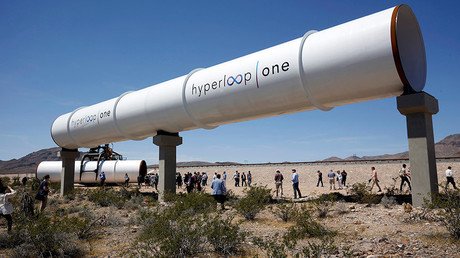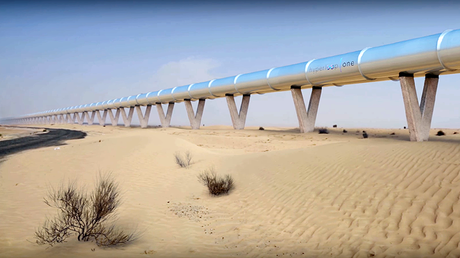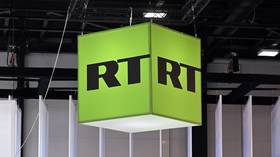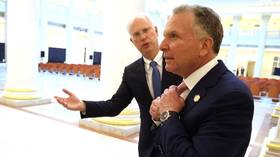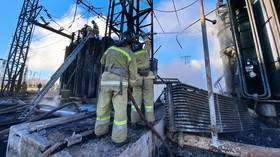No more planes? Hyperloop test facility unveiled in Netherlands
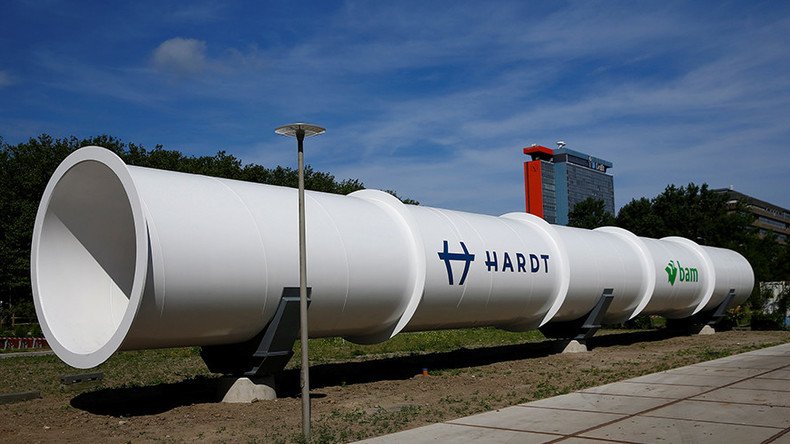
A Hyperloop test facility has been unveiled in the Netherlands, bringing Elon Musk's vision of transporting pods of people through a tube at incredibly high speeds one step closer to fruition.
The test facility, a 30-meter-long (100ft), 3.2-meter-diameter (10.5ft) steel tube, is located at Delft Technical University.
"In this facility we will test all systems that don't require high speeds," said Tim Houter, CEO of Hardt Global Mobility, which is working on the project with construction company BAM, as quoted by Reuters.
Musk first proposed the Hyperloop in 2013, envisioning a system with levitating pods powered by electricity and magnetics which travel through low-friction pipes.
The levitation system, propulsion system, and safety systems will all be tested at the Dutch facility, according to Houter.
If Musk's vision is realized, pods of people will travel through Hyperloop tubes at speeds of roughly 700 miles per hour (1,126 km/h).
"It's our goal to let it be available for the daily commuter," Houter said, as quoted by AP.
Houter, who was part of a group of Delft Technical University students who won a Hyperloop contest organized by SpaceX and Tesla Motors co-founder Musk in January, called the concept a "sort of on-demand, high-speed transportation system for everyone."
The system could also be convenient for those who wish to avoid the perils of air travel, the CEO of Hyperloop Transportation Technologies (HTT), Dirk Ahlborn, told RT.
"If you think about connecting people, and connecting people at the speed of sound with a system that doesn't require everything we hate so much about air travel, I think you'll see that there's a huge potential," Ahlborn told RT in St. Petersburg, Russia.
Ahlborn said the Hyperloop is also able to avoid the high operational costs which currently keep rail lines from being profitable.
"Our system has the advantage that we have a very low operational cost, so we are able to be profitable in a very short timespan, and that's so far not possible. There's no rail line, no major line, in the whole world that's profitable," he said, adding that current lines are heavily dependent on government subsidies.
Meanwhile, Hardt Global Mobility has no plans of slowing down. In the future, the company hopes to build a longer high-speed test facility which will focus on lane switching.
After that, the start-up aims to begin construction of a Hyperloop route between Amsterdam and Paris by 2021.
The company currently has €600,000 (US$675,000) in funding for the initial rounds of testing, with plans to raise more for the future high-speed test line, according to Reuters.
The Dutch government seems to be on board with the futuristic Hyperloop plan, with Infrastructure and Environment Minister Melanie Schultz van Haegen saying it could help solidify the Netherlands' position as a gateway to Europe, by transporting freight arriving at Rotterdam's busy port.
"If you then can move the goods in a fast way to the rest of Europe, this is very important for competition," she said.
